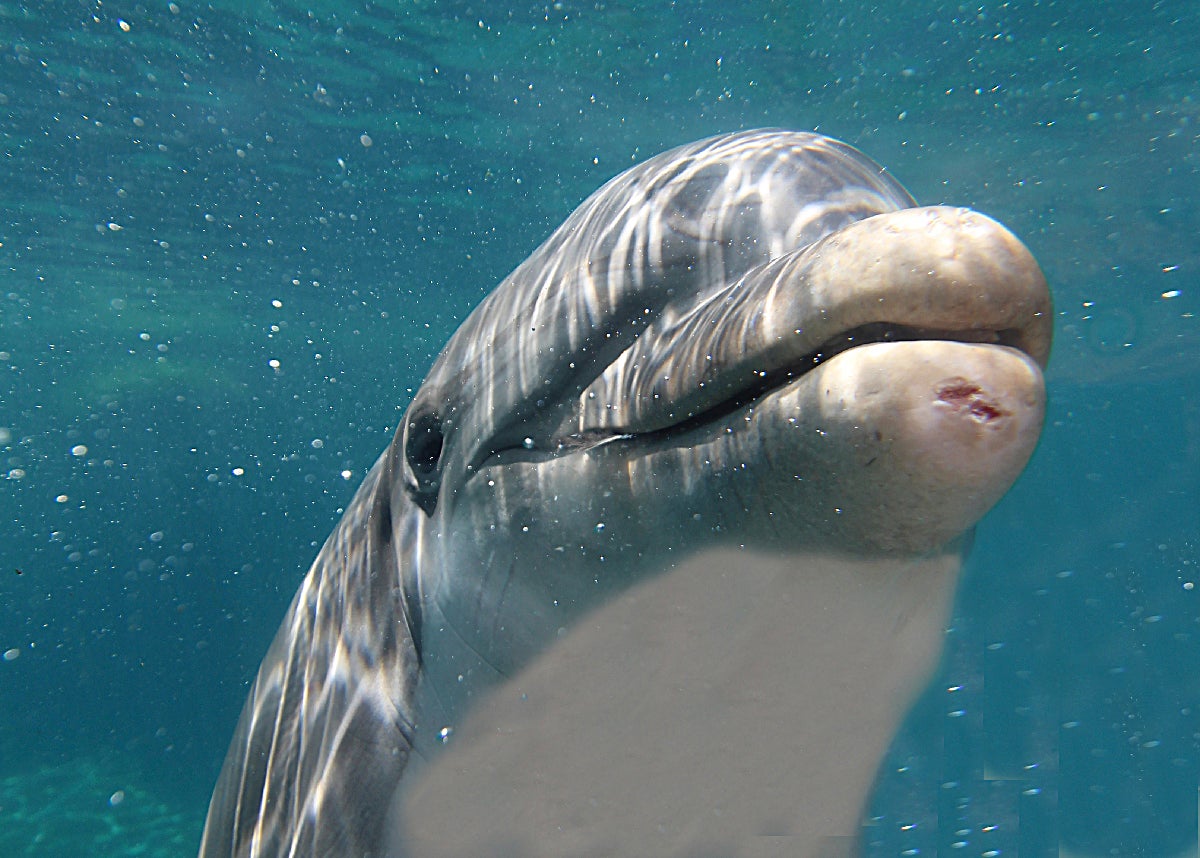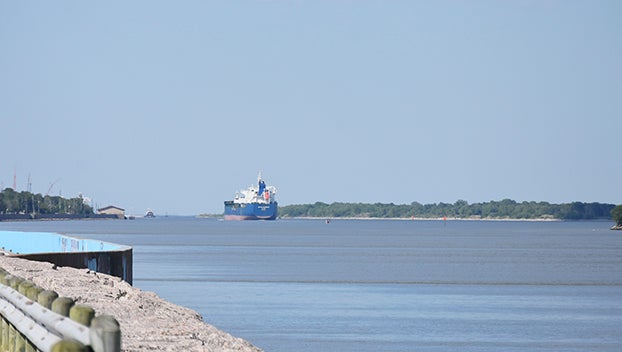Marine mammals epitomize wild Gulf waters
Published 4:41 pm Wednesday, May 31, 2017

- The atlantic bottlenose dolphin is a common sight along the Texas coastline. Anglers, boaters and beachcombers can help them by calling the Texas Marine Mammal Stranding Network if they encounter a sick or stranded one. (Chester Moore Jr./Special to The News)
The Gulf of Mexico is a wild and interesting place.
Teeming with life, it is a place of great inspiration and is also the source of occupation for many people in the fishing, shrimping and petrochemical industries.
Although seldom mentioned in media Gulf waters are rich in marine mammals and although many of them are rarely seen by the public their conservation is important to the overall health of the Gulf ecosystem.
According to NOAA there are 28 different species of marine mammals known to occur in the Gulf of Mexico. All 28 species are protected under the Marine Mammal Protection Act (MMPA) and six are also listed as endangered under the Endangered Species Act (ESA) (sperm, sei, fin, blue, humpback and North Atlantic right whales).
Of the six ESA-listed whales, only endangered sperm whales are considered to commonly occur. There according to NOAA a resident population of female sperm whales in the Gulf of Mexico, and whales with calves are sighted frequently. Cuvier’s beaked whales are elusive and rarely seen at the surface, which is why their population status is unknown. These whales vary in coloration from rusty-brown, dark gray, or tan. They prefer deep water, avoid shallow coastal areas, and are known to travel in groups of two to 7.
Bottlenose dolphins inhabit the Gulf of Mexico year-round. They are blue-gray with lighter sides and bellies and have a robust body and head. This species is the most commonly observed dolphin in nearshore waters, and travel alone or in groups up to 20. These are the dolphins seen around ferries and in our bay systems.
Atlantic spotted dolphins prefer tropical to warm-temperate waters over the continental shelf, edge, and upper reaches of the slope. These dolphins have variable spotting. They are very active at the surface and often breach while feeding. Group size is usually between 5-15.
Risso’s dolphins according to NOAA are typically found around the continental shelf edge and steep upper sections of the slope. They are light gray and often exhibit extensive scarring. These dolphins travel alone or in groups of up to 100 and may be observed with other species.
No one enters these animals domain more than fishermen and in many cases anglers have helped locate and monitor injured marine mammals.
Anglers have been at the forefront of the conservation world with groups like the Coastal Conservation Association working heavy with sport fish and habitat but have also been very interested in aiding all aquatic species.
Marine mammals are some of the most interesting creatures in the world and if we open our eyes and pay just a little more attention we might just come across a rarity or get a big surprise.
I will never forget the first time I saw a pink albino dolphin in Lake Calcasieu and saw a beaked whale while fishing 80 miles offshore in a party boat out of Galveston. It’s our duty to makes sure these creatures can thrive in the waters that we know and love.
Today I officially kick off the “Wild Gulf” program where we are taking kinds from our “Wild Wishes” program which grants exotic animal encounters to kids who have a terminal illness or have lost a parent or a sibling at various points from Florida to South Texas to raise awareness to conservation of the Gulf’s wildlife.
Weather permitting I will be in the surf in the Matagorda area seeking out sharks with one of the boys from our program.
We will be teaching him about the importance of sharks in the ocean and how catch-and-release along with tagging is crucial to conservation efforts.
And hopefully through social media and platforms like this column we can help raise awareness to the many incredible creatures in the Gulf.
If you happen to find a stranded marine mammal please call the Texas Marine Mammal Stranding Network (TMMSN).
• Call 1-800-9-MAMMAL
• DO NOT return the animal to the sea.
• Follow instructions from TMMSN staff until the rescue team arrives.
• Keep people and pets away from the animal.
• Only one or two people are needed until expert help arrives. Do not leave the animal.
The Texas Marine Mammal Stranding Network (TMMSN) is a non-profit organization created in 1980 to further the understanding and conservation of marine mammals through rescue and rehabilitation, research and education.
We can all do our part to keep the Gulf wild and its inhabitants around for many years to come.
•
To contact Chester Moore, email him at chester@kingdomzoo.com. You can hear him on “Moore Outdoors” Fridays from 6-7 p.m. on Newstalk AM 560 KLVI or online at www.klvi.com.





